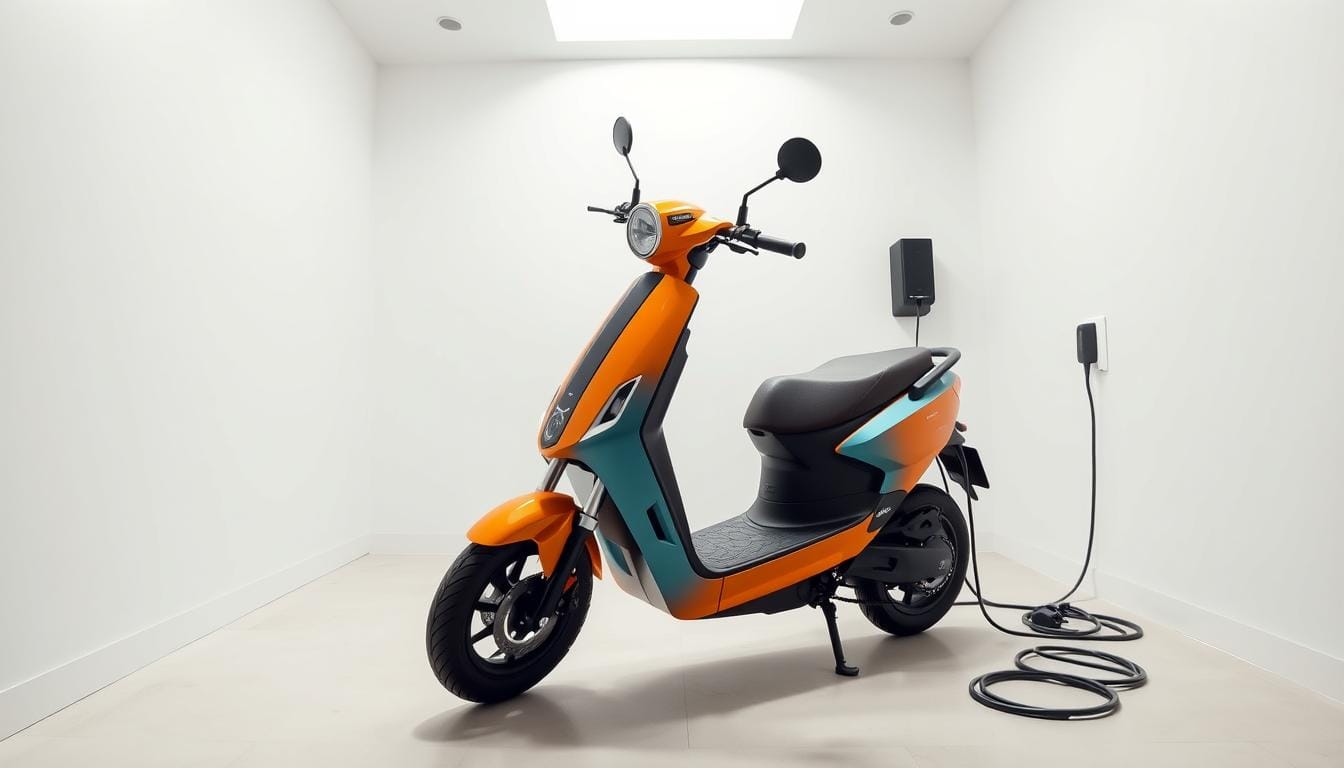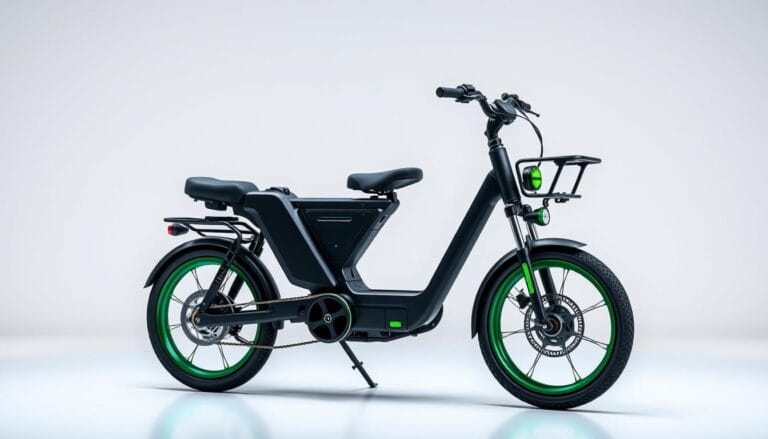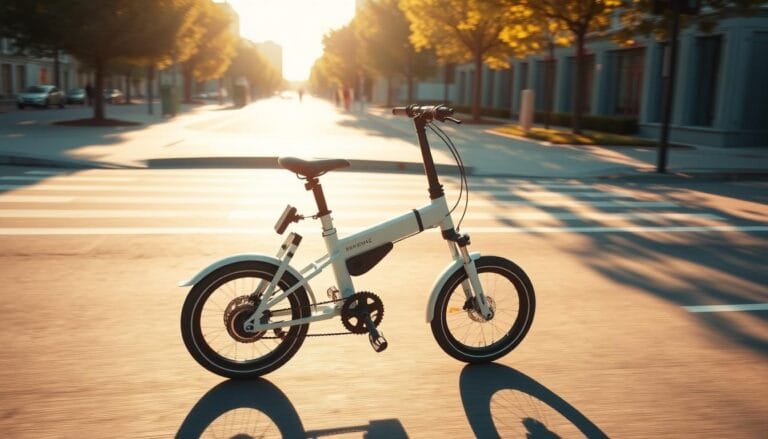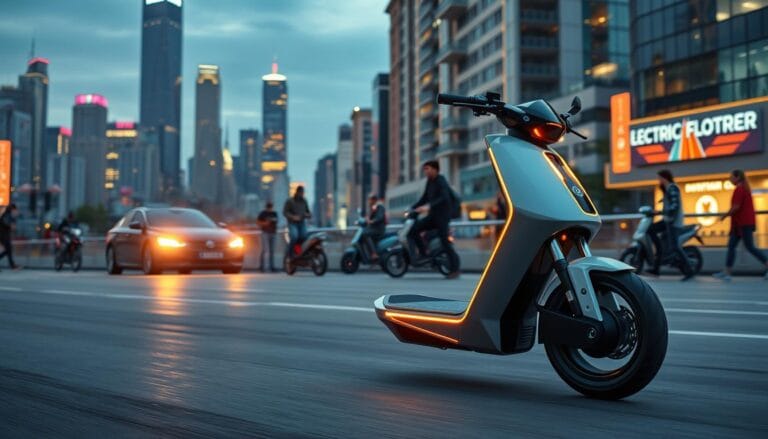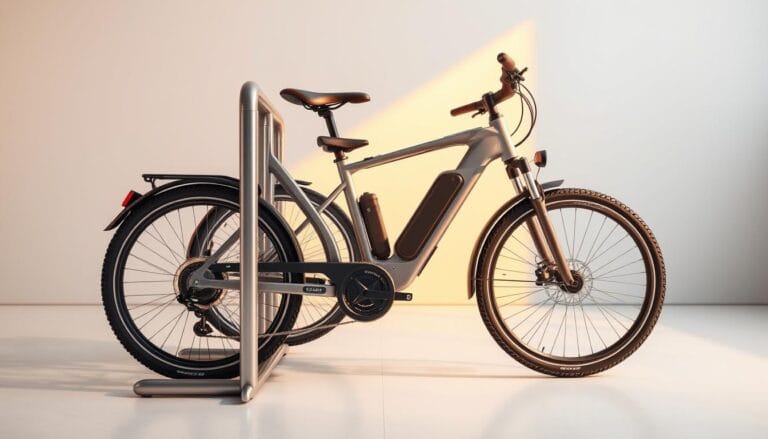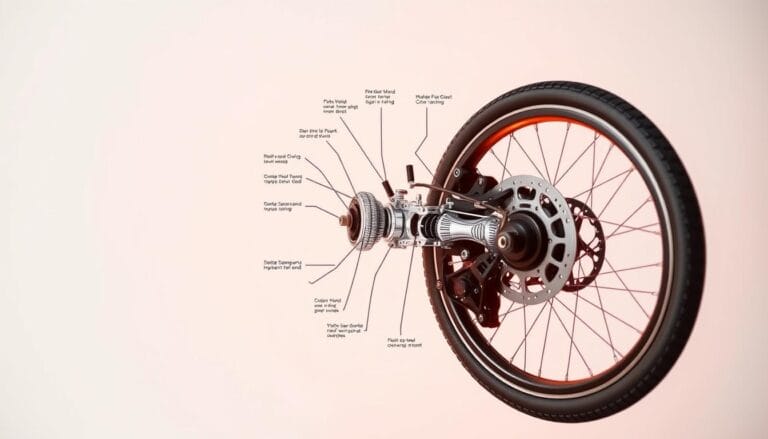Scooter Charging Hacks: Faster Power-Ups at Home
Ever found yourself stuck with a dead electric scooter battery in the city? It’s frustrating when your ride suddenly stops working. Electric scooters are changing how we move around cities, offering a green and affordable way to get around.
As electric scooters become more popular, knowing how to charge them quickly is key. These tips aren’t just for keeping your scooter running. They help you get the most out of your ride, make your battery last longer, and ensure you’re always set to go.
Whether you’re a pro or new to e-scooters, learning how to charge them well can make a big difference. This guide will show you how to charge your scooter at home and keep it in top shape. You’ll be ready to hit the streets with confidence.
Table of Contents
Understanding Your Scooter Battery Basics
Electric scooters have changed how we move around cities. Battery tech is key to their success. Knowing how to make your scooter’s battery last longer is important for every rider.
Most electric scooters use lithium-ion batteries. These batteries are top-notch, offering great performance and efficiency. They are essential for keeping your scooter running smoothly and reliably.
Types of Scooter Batteries
There are different types of electric scooter batteries. Each has its own strengths:
- Lithium-Ion Batteries: The most common, known for high energy density
- Lead-Acid Batteries: Older tech with lower performance
- Lithium Polymer (LiPo): Known for being lightweight and compact
Battery Life Expectancy
An electric scooter battery usually lasts 300 to 500 full charge cycles. Taking good care of it can make it last longer. This helps you get the most out of your investment.
Factors Affecting Battery Performance
Several things can affect your scooter’s battery health:
- Charging habits (keep it between 20-80% charge)
- Temperature exposure
- Riding conditions
- How often you use it
Pro tip: Regular maintenance and mindful charging can dramatically improve your battery’s longevity and performance.
Learning about these basics will help you take better care of your electric scooter. This way, you can enjoy its best performance for many years.
Essential Tools for Efficient Charging
Charging your electric scooter is more than just plugging in a charger. Using smart scooter battery charging tricks can make charging better and last longer. With the right tools and methods, you can charge your scooter efficiently and keep it ready to go.
Today’s electric scooter riders have access to new tools that make charging easier. Knowing about these tools helps keep your battery healthy and working well.
Smart Chargers: The Game Changers
Smart chargers are a big step forward in battery care. They offer many benefits:
- Automatic charge cycle adjustment
- Overcharge protection
- Real-time battery health monitoring
- Precise voltage regulation
Power Strips with Timers: Energy-Saving Solution
Using power strips with timers in your charging routine can save energy and prevent overcharging. These tools help you:
- Set precise charging durations
- Automatically cut power after full charge
- Save electricity costs
- Protect battery from potential damage
Essential Battery Maintenance Tools
Keeping your scooter battery in great shape needs special tools. Think about getting:
| Tool | Purpose | Benefit |
|---|---|---|
| Multimeter | Check battery voltage | Detect potential issues early |
| Cleaning Kit | Maintain connection points | Ensure optimal charging efficiency |
| Thermal Protection Sleeve | Regulate charging temperature | Prevent performance degradation |
By using these scooter battery charging tricks, you’ll make charging better and protect your scooter’s battery.
Optimizing Charging Times
To get the most out of your scooter’s battery, you need to charge it right. This keeps your battery healthy for a long time. Learning the best ways to charge can make your scooter last longer and work better.
Managing your scooter’s battery starts with knowing when and how to charge it. Most electric scooters use lithium-ion batteries. These batteries need specific charging to work their best.
Best Practices for Charging Durations
Here are some important tips for charging your battery:
- Recharge when battery levels drop to 20-30%
- Avoid complete battery drainage
- Unplug immediately after reaching full charge
- Use chargers with automatic shut-off features
Charging During Off-Peak Hours
Charging smartly can also save you money. Charging when electricity rates are lower has many benefits:
- Lower electricity rates
- Reduced strain on power grid
- Potentially cooler ambient temperatures
- Less electrical system stress
Pro tip: Charge your scooter during late evening or early morning. This is when electricity demand is lowest.
By following these tips, you’ll make your scooter’s battery last longer. You’ll also keep it running efficiently.
Location Matters: Ideal Charging Spots
Choosing the right spot to charge your electric scooter is key. It affects how well your battery works and lasts. Knowing how the environment impacts your battery is crucial.
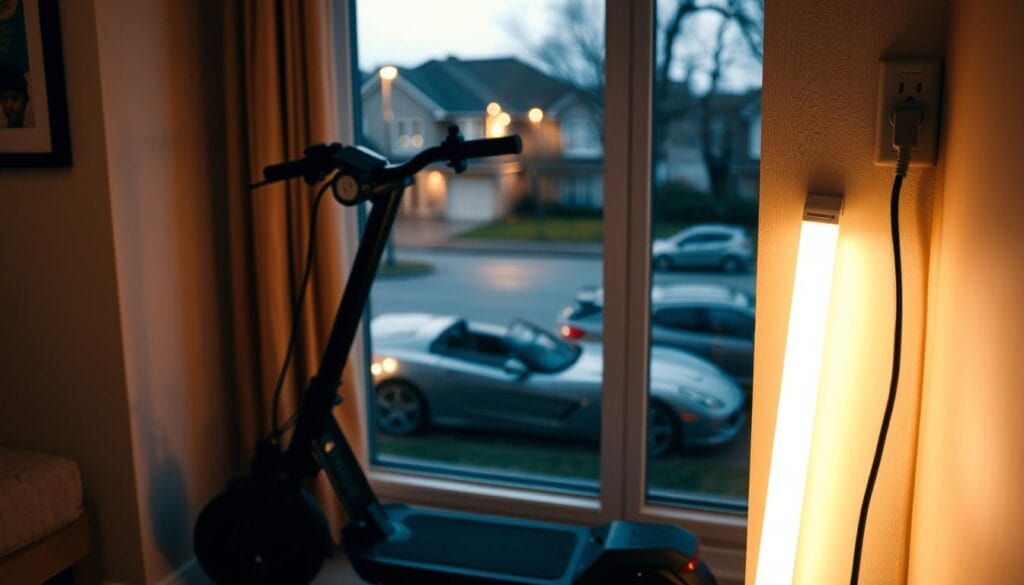
Your scooter’s battery is very sensitive to its surroundings. Temperature is a big factor in keeping your battery in top shape. To charge your scooter well, pick the right place.
Indoor vs. Outdoor Charging Considerations
- Indoor Charging Benefits:
- Consistent temperature control
- Protection from weather elements
- Reduced risk of theft
- Outdoor Charging Challenges:
- Exposure to temperature extremes
- Potential moisture damage
- Security risks
Avoiding Extreme Temperatures
Battery performance changes a lot with temperature changes. Here’s a quick guide to temperature impacts:
| Temperature Range | Battery Performance | Recommended Action |
|---|---|---|
| Below 32°F (0°C) | Reduced capacity | Charge indoors at room temperature |
| Above 110°F (43°C) | Accelerated battery degradation | Keep battery in cool, shaded area |
| 50-80°F (10-27°C) | Optimal charging conditions | Ideal charging environment |
Pro tip: Always charge your scooter in a stable room temperature environment. Avoid direct sunlight or cold drafts. This keeps your battery healthy and makes your scooter last longer.
Protecting Your Battery Health
Keeping your electric scooter’s battery in good shape is key. It helps your scooter last longer and work better. Follow these Electric Scooter Battery Tips to get the most out of your ride and save money on new batteries.
Your scooter’s battery is its heart. Taking care of it can make it last a lot longer. Most scooters use lithium-ion batteries. These batteries work great if you take care of them.
Essential Maintenance Strategies
- Clean battery terminals regularly to prevent corrosion
- Charge the battery when it reaches 20-30% capacity
- Store the scooter at 50% charge during long periods of inactivity
- Avoid extreme temperature conditions
- Use the manufacturer’s recommended charger
Recognizing Battery Replacement Signs
Knowing when your battery needs help is important. Look out for these signs:
- Significant range reduction – Shorter rides than usual
- Increased charging times
- Difficulty holding a charge
- Visible physical damage or swelling
- Inconsistent power delivery
By following these Electric Scooter Battery Tips, you can make your battery last longer. Regular checks and care are essential for a smooth ride.
Using Fast-Charging Techniques
Electric scooters have changed city travel, thanks to fast charging. Learning how to charge your scooter well can make your rides better and last longer.
Today’s electric scooters use new charging tech that cuts down on waiting time. These charging methods have changed how we keep our scooters running.
Understanding Fast-Charging Technology
Fast charging lets you fill up your scooter’s battery quickly without harming it. It works because of:
- Smart power control systems
- Charging cycles that are optimized
- Charging that keeps the battery at the right temperature
Compatible Fast Chargers for Scooters
Choosing the right fast charger is key to keeping your scooter’s battery in top shape. Not all chargers fit all scooters, so it’s important to pick the right one.
| Charger Type | Charging Time | Battery Compatibility |
|---|---|---|
| Standard Charger | 4-6 hours | Most lithium-ion batteries |
| Fast Charger | 1-2 hours | Select lithium-ion models |
| Smart Charger | 2-3 hours | Advanced battery management systems |
“The right charger can extend your battery’s life and improve overall scooter performance.” – Electric Mobility Expert
To keep your battery healthy, always use the charger your scooter maker suggests. How you charge your battery affects how long it lasts.
Overcoming Common Charging Challenges
Managing scooter batteries can be tricky. But knowing the common charging challenges helps keep your electric scooter running well. Practical charging solutions start with spotting battery issues early.
Electric scooter batteries need careful attention for best performance and life. Owners face many charging problems that can affect their rides.
Dealing with Slow Charging Issues
Slow charging can come from several reasons:
- Worn-out charger parts
- Battery age and wear
- Incorrect charging voltage
- Extreme temperatures
Solutions for Battery Memory Effect
To avoid battery memory effect, follow these charging tips:
- Don’t let the battery fully drain
- Keep charge between 20-80%
- Use the charger made by the manufacturer
- Store batteries in room temperature
| Charging Challenge | Recommended Solution |
|---|---|
| Slow Charging | Replace charger, check battery health |
| Battery Memory Effect | Partial discharge cycles |
| Connection Issues | Clean battery terminals |
Using these scooter battery hacks will improve your scooter’s battery life and performance.
Enhancing Longevity with Proper Use
Electric scooter owners can make their batteries last longer by using them wisely. It’s important to know how your riding habits affect the battery’s health and range.
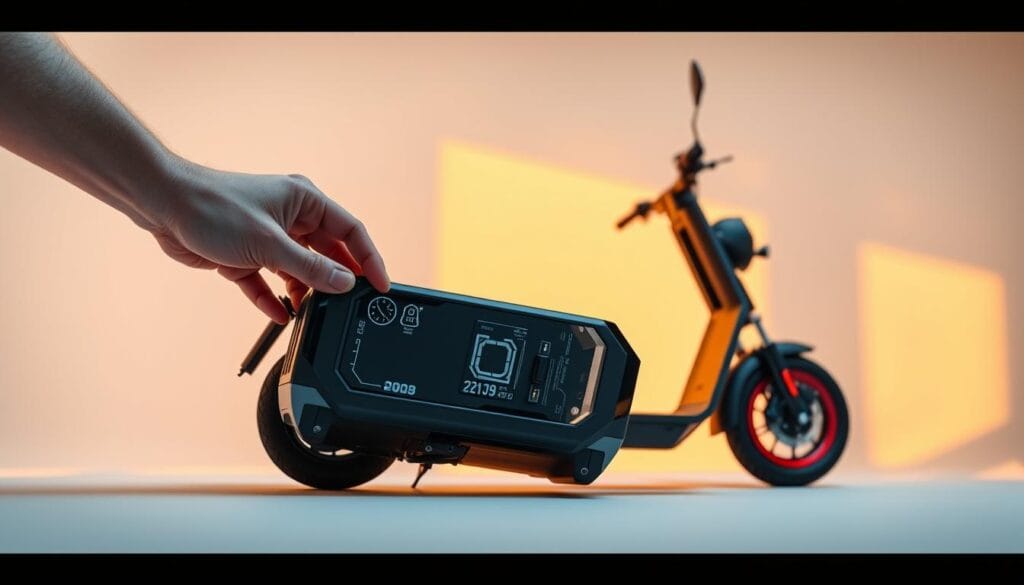
Your electric scooter’s battery is key and needs careful handling. Most scooters have lithium-ion batteries. These batteries work well if used right.
Mastering Regular Usage Techniques
To get the most out of your scooter’s battery, follow these tips:
- Keep your riding speed steady
- Don’t brake hard or accelerate suddenly
- Keep the battery charge between 20-80%
- Ride smoothly and predictably
Preventing Battery Stress
Deep discharges can shorten your battery’s life. Keep your battery safe by not letting it drain completely. Charge it when it’s at 20-30% to avoid damage.
Temperature affects battery performance. Charge and store your scooter between 50°F and 86°F for best results. Extreme temperatures can harm the battery and reduce its efficiency.
Pro Tip: Regular, mindful charging helps maintain battery health and extends your scooter’s operational life.
Eco-Friendly Charging Hacks
More electric scooter owners want to charge their rides in a green way. The world of Scooter Charging Hacks is changing. Now, we have more eco-friendly and creative solutions.
Green energy is changing how we charge our electric scooters. Solar charging is a big leap forward for those who care about the planet.
Solar Charging Solutions
Use the sun’s power with these advanced charging methods:
- Portable solar panels (100W or 150W recommended)
- Solar-powered charging stations
- Compact solar chargers for on-the-go power
Charging an e-scooter with a 25-watt solar panel takes about 120 minutes. How fast it charges depends on:
- Weather conditions
- Solar cell quality
- Panel angle and orientation
Energy-Efficient Charging Practices
Make your electric scooter more eco-friendly with these smart tips:
- Charge during off-peak electricity hours
- Use smart power strips with timers
- Unplug chargers when not in use
- Invest in energy-efficient charging equipment
By using these Scooter Charging Hacks, you can lower your carbon footprint. Enjoying electric scooter rides just got greener. Every little bit helps in protecting our planet.
Troubleshooting Charging Problems
When your electric scooter has trouble charging, finding the cause is key. The most common problem is a dead or low battery. This stops your scooter from turning on right. A detailed check can help fix these issues.
Start by checking your charger and connections. A bad charger can stop power flow, even if the battery looks fine. Look for dirt, bent pins, or wear on the charging port. Also, check for loose wiring or a blown fuse.
Other problems might be with safety switches, power buttons, or the Battery Management System (BMS). If your scooter won’t charge, make sure kickstand and brake switches are right. Use a voltage test to see if the battery is okay. Remember, lithium-ion batteries have a protection circuit that kicks in if they’re too low.
If simple fixes don’t work, you might need a pro’s help. Cold weather can affect battery performance. Try warming your scooter indoors. Always use the right charger and charge regularly to avoid problems. Knowing your scooter’s electrical system helps keep the battery healthy and your rides reliable.

